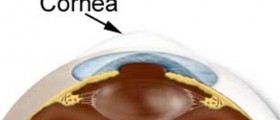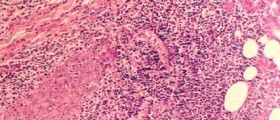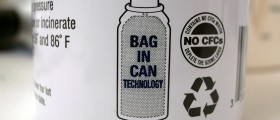
Bloody Nose
Nose hemorrhage is medically known as epistaxis. It is frequent among children and most of the cases are mild. The bleeding stops spontaneously and never leads to excessive loss of blood. Still, in some patients nosebleeds can point to serious medical condition. This is why frequent and recurrent nosebleeds need to be reported to the doctor. In elderly people, for example, frequent nosebleeds may be the only symptom of increased blood pressure. If reported, the diagnosis can be set on time and elevated blood pressure can be timely brought under control.
Epistaxis can be anterior when blood drains through nostrils and posterior in which some of the blood drains through nostrils and some enters the throat.
Causes of Bloody Nose
Causes of nosebleeds are various. Bloody nose may occur due to injury of the blood vessels in the nose or simply due to exposure to dry air. Children are very susceptible to frequent nosebleeds because they tend to play with objects and then put them in the nose. They also pick nose more than adults.
Dry nose is actually one of the leading problems which may cause nosebleeds. Mucous membrane of the nose becomes dry if humidity drops below the appropriate range. If weather features with low humidity, mucous membrane becomes dry and is rather susceptible to cracks. Cracks can affect superficial layer of the mucous membrane and sometimes even blood vessels are affected which causes bleeding.
Trauma of the face, especially the nose, causes heavy bleeding.
Nose picking is another possible cause of bloody nose. Picking can directly violate the continuity of the skin and blood vessels.
Bloody nose may also be a consequence of frequent and excessive nose blowing. If a person is blowing his/ her nose very hard he/ she increases the pressure inside the capillaries of the nose and this leads to bleeding.
In patients who are taking anticoagulants bloody nose occurs as side effect of these medications. If bleeding becomes serious and cannot stop spontaneously, patients must go to the doctor immediately.
In hypertension bloody nose can be only one of the symptoms or perhaps the only one. Nosebleeds due to high blood pressure are recurrent and they stop only after the patient is prescribed proper therapy.
Repeated nosebleeds are also common for alcoholics. Alcohol can be one of the potential triggers for epistaxis. In alcoholism blood vessels become fragile and prone to injury.
Additional cause of bloody nose includes prolonged usage of nasal sprays. It may also occur in exposure to chemical irritants. And finally, benign and malign tumors of the nose and sinuses may lead to nosebleeds.

















Your thoughts on this
Loading...